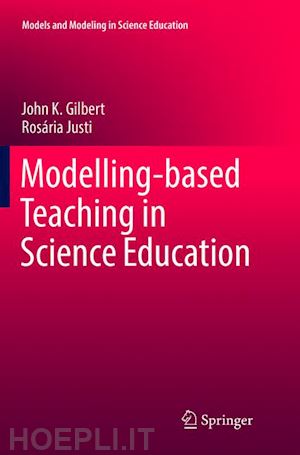
Questo prodotto usufruisce delle SPEDIZIONI GRATIS
selezionando l'opzione Corriere Veloce in fase di ordine.
Pagabile anche con Carta della cultura giovani e del merito, 18App Bonus Cultura e Carta del Docente
This book argues that modelling should be a component of all school curricula that aspire to provide ‘authentic science education for all’. The literature on modelling is reviewed and a ‘model of modelling’ is proposed. The conditions for the successful implementation of the ‘model of modelling’ in classrooms are explored and illustrated from practical experience. The roles of argumentation, visualisation, and analogical reasoning, in successful modelling-based teaching are reviewed. The contribution of such teaching to both the learning of key scientific concepts and an understanding of the nature of science are established. Approaches to the design of curricula that facilitate the progressive grasp of the knowledge and skills entailed in modelling are outlined. Recognising that the approach will both represent a substantial change from the ‘content-transmission’ approach to science teaching and be in accordance with current best-practice in science education, the design of suitable approaches to teacher education are discussed. Finally, the challenges that modelling-based education pose to science education researchers, advanced students of science education and curriculum design, teacher educators, public examiners, and textbook designers, are all outlined.
Chapter 1. Facing the challenges to science education in schools: The contribution of modelling.- Chapter 2. Models of modelling.- Chapter 3. Towards authentic learning in science education.- Chapter 4. Approaches to modelling-based teaching.- Chapter 5. Learning scientific concepts from modelling-based teaching.- Chapter 6. The role of argumentation in modelling-based teaching.- Chapter 7. The contribution of visualisation to modelling-based teaching.- Chapter 8. Analogies in modellling-based teaching and learning.- Chapter 9. Learning about science through modelling-based teaching.- Chapter 10. Learning progression during modelling-based teaching.- Chapter 11. Educating teachers to facilitate modelling-based teaching.- Chapter 12. Modelling-based teaching and learning: Current challenges and novel perspectives.











Il sito utilizza cookie ed altri strumenti di tracciamento che raccolgono informazioni dal dispositivo dell’utente. Oltre ai cookie tecnici ed analitici aggregati, strettamente necessari per il funzionamento di questo sito web, previo consenso dell’utente possono essere installati cookie di profilazione e marketing e cookie dei social media. Cliccando su “Accetto tutti i cookie” saranno attivate tutte le categorie di cookie. Per accettare solo deterninate categorie di cookie, cliccare invece su “Impostazioni cookie”. Chiudendo il banner o continuando a navigare saranno installati solo cookie tecnici. Per maggiori dettagli, consultare la Cookie Policy.